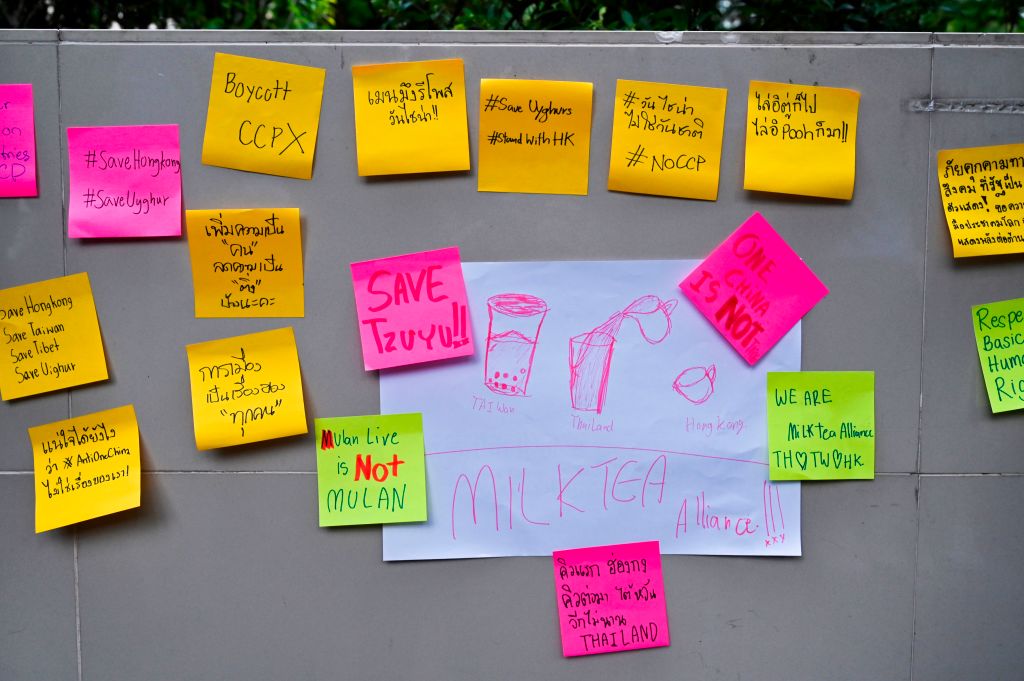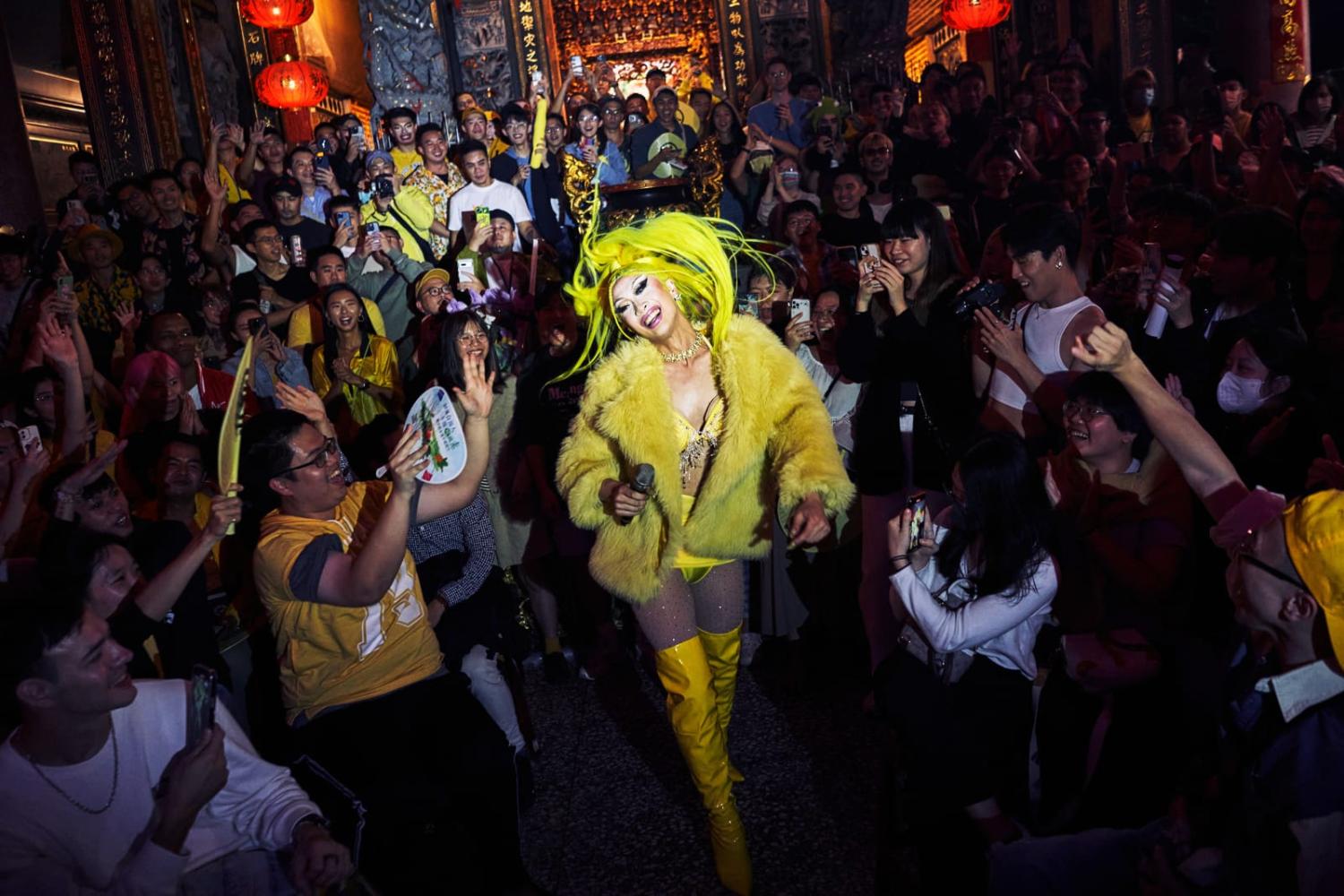For Taiwan, which often finds its international participation constrained – barred from a World Health Organization membership and competing under the “Chinese Taipei” flag at the Olympics – the triumph of Nymphia Wind, a charismatic drag queen from Taiwan, on Season 16 of RuPaul’s Drag Race American television reality competition is a moment of significant cultural and political resonance.
Nymphia Wind is not just the first Taiwanese contestant to be crowned America’s Next Drag Superstar, but the first non-American to claim the title on the Emmy-winning drag queen reality competition. (Australia’s Courtney Act and Canada’s Brooklyn Hytes both were runners-up in their respective seasons.)
This watershed victory has broader socio-political implications for Taiwan. President Tsai Ing-Wen and incoming President Lai Ching-te recognised its national importance and were quick to extend their congratulations.
Across the world, drag remains a central part of the modern LGBTQIA+ movement and the fight for equality. Beloved figures such as Marsha P. Johnson and Sylvia Rivera epitomised the defiance and resilience of the community in the Stonewall Riots of 1969, which started a decades-long road to equality globally. Drag has become both a form of self-expression and a transnational protest against injustice and oppression.
Watched by millions around the world, RuPaul’s Drag Race – along with its 15 international franchises, including one Down Under – is credited with shifting perceptions of drag culture and LGBTQIA+ issues into mainstream consciousness, just like shows such as Will and Grace or Ellen. Many have credited the show’s role in destigmatising LGBTQIA+ communities through positive representation and humanising people by making them visible and relatable.
While the show itself is still a reality competition that prizes some forms of drag over others and whose profit-driven purpose is less altruistic than most would prefer to admit, Drag Race has been a cultural export of immense soft power with a significant impact on transnational social issues. The show's format has been replicated globally and serves as a rare space for queer cultural dialogue and expanding the visibility of queer communities worldwide.

In many ways, Taiwan’s LGBTQIA+ rights journey mirrored the island’s metamorphosis into the vibrant democracy it is today. In 1996, Taiwan held its first direct presidential election. Four years later, the body of Yeh Yung-chih (also known as the “Rose Boy”), a young student bullied for his gender non-conformity, was found in a public school bathroom in Kaohsiung. Yeh’s death brought LGBTQIA+ issues and rights into mainstream Taiwanese politics, leading to the enactment of the Gender Equity Education Act in 2004. Since then, and after a stumble, the island has become the first in Asia to legalise same-sex marriage, viewing LGBTQIA+ rights as an important part of the broader “umbrella of democracy”.
Nymphia Wind’s crowning, exactly 24 years to the day after Yeh’s tragic death, will likely reinvigorate national human rights debates in Taiwan, where presidential elections have become a battleground on whether LGBTQIA+ rights will be curtailed or sustained. Though, her story of discovering self-love, resilience against bullies, and a love of family will resonate deeply within Taiwanese society and push voters to embrace human rights and other liberal values.
Her win is also a masterstroke of nation-building, soft power, and cultural diplomacy. As a new ambassador for drag and Taiwanese culture, Nymphia’s global visibility provides a unique platform for Taiwan to project its soft power as a centre of entertainment and as a leader in LGBTQIA+ rights within Asia. Events like Taipei Pride, Asia’s largest pride parade, will gain additional international attention and support through Nymphia’s ambassadorship and distinguish Taiwan from more conservative regimes in the region.
Nymphia’s final performance – featuring a triple-reveal bubble tea dress symbolising solidarity with the #MilkTeaAlliance – highlights a collective resistance against authoritarianism and China’s growing influence in the region. Many Southeast Asian netizens, in particular, noticed and have already shown appreciation for Taiwanese solidarity.
For Western audiences, Nymphia’s victory changed the narrative of Taiwan beyond the threat of war or semiconductor (in)security. Viewers were introduced to Taiwanese presidential politics on the day Nymphia’s first episode aired. Throughout the competition, she openly discussed democracy and rights and brought Taiwan into the global LGBTQIA+ discourse. Western audiences – and policymakers who watch the show – are now all but familiar with Taiwan as a key stakeholder and ally in broader geopolitical dialogues about security, rights, and representation in the Indo-Pacific.
Her victory holds the potential to significantly shape the political perspectives of younger generations in the West. Nymphia’s personal and drag performances have primed Millennials and Gen Z – who have shown solidarity with causes such as Gaza, unlike their parents – to see in Taiwan a similar call to action. This empathy is not trivial; it represents a powerful form of soft power that Taiwan will harness in the lead-up to war. This shift will influence how Western voters support Taiwan, a development that Western politicians should not overlook.

